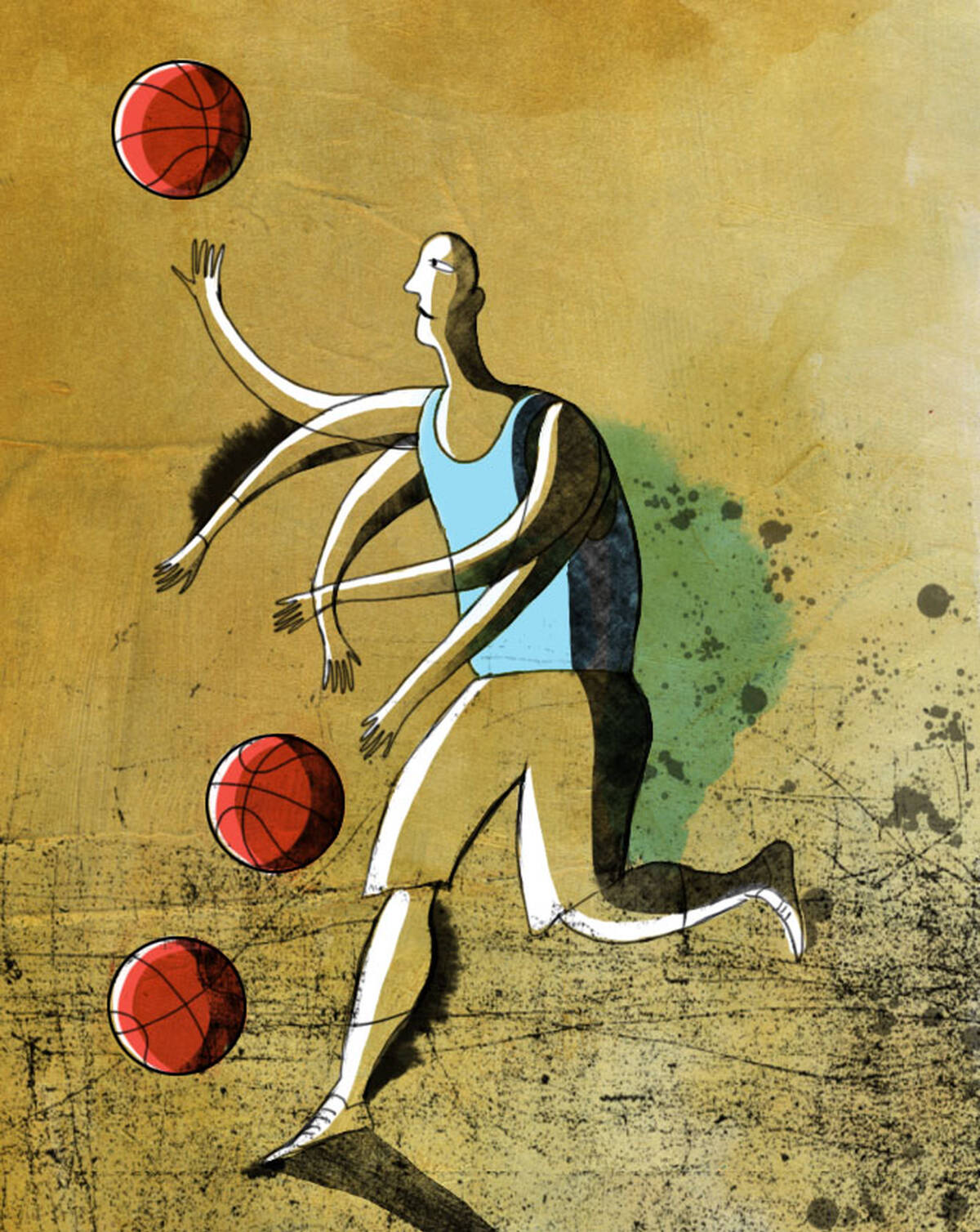Organizations Leadership Aug 5, 2013
Everyone Loves a Generalist
Specialists are undervalued, on sports teams and in the workplace

Three-point shooting can make or break a basketball team’s success—just ask the most accurate three-point shooter in NBA history, Steve Kerr, with five national championships under his belt. By sinking long-distance shots, a three-point shooter can open up the court, truly changing the tenor of the game.
Yet the majority of three-point shooters in the game are rarely accorded much acclaim. Indeed, according to Sports Illustrated, for several years even Kerr was “a guy who went virtually unrecruited because he couldn’t jump and was two steps slow.” Is it true that three point shooters, despite possessing a relatively rare skillset, are undervalued by coaches and fans?
Managers and Fans Minimize Specialists’ Contributions
Long Wang, an avid basketball fan, had long wondered just this. He approached his then doctoral advisor, Keith Murnighan, a professor of management and organizations at the Kellogg School of Management. The pair decided to investigate: might we have a bias toward generalists, who possess a wide range of skills, over specialists, who have narrow but deep expertise?
“Do you want five superior athletes, or one clunky, nonjumping, great-shooting three-point shooter and four great athletes?”
Wang, now an assistant professor at the City University of Hong Kong, and Murnighan put their theory to the test. In a series of studies, the researchers indeed found evidence of a bias in favor of generalists.
In one study, Wang and Murnighan used salary and performance data for over 300 NBA players to find that, on average, the three-point specialists’ salaries are tied not to their three-point shooting, but to their two-point shooting—even though their three-point shooting has the bigger impact on their team’s performance. In other words, these specialists, unlike their generalist teammates, are not compensated based on the actual role they play in their teams’ success.
But don’t go blaming the NBA professionals; regular fans are also likely to discount three-point specialists. In another study, Wang and Murnighan asked fans to imagine that they were the general manager of an NBA team in need of a good three-point shooter. The participants were shown three player profiles: Which would they recruit, and how much should each be paid? The participants were more inclined to recruit and compensate the generalist (whose two- and three-point shooting were both above average) over the three-point specialist (whose three-point shooting was exceptional, but whose overall scoring was below average). “Because the instructions emphasized that the team needed a three-point shooter, favoring the generalist was evidence of a generalist bias,” the researchers write.
The Hazards of Direct Comparisons
What could be going on? Why do three-pointer specialists seem to get short shrift, even when, for a particular role, they add more value to their team than would another generalist?
For one, Murnighan explains, we have a natural tendency to compare people against one another—and when we compare three-point specialists to overall stars, they look terrible. “Do you want five superior athletes, or one clunky, nonjumping, great-shooting three-point shooter and four great athletes? In fact, the five great ones—on average—might each be better than this guy, but as a team you do better when you have a role player who can do something special.”
It is a tendency that extends to the workplace as well. In another study, Long and Murnighan found that participants posing as hiring managers overlooked the specialist better equipped to fill the job at hand in favor of a generalist with more overall experience.
Another study examined job ads posted to Monster and Careerbuilder. How many companies, the researchers wondered, would advertise for a true specialist? They found that even positions flagged for specialists asked applicants to have skillsets in two distinct domains about 36% of the time. Moreover, larger organizations—those organizations best poised to take advantage of specialists’ unique skillsets—were more likely to demand multiple skillsets from their specialists than smaller organizations.
Managers Must Learn to Conduct
Managers are myopic, says Murnighan. In an ideal world, a hiring manager would be like a conductor, standing on a podium, baton in hand, knowing how many violinists, violists, cellists, and horn players are needed to prevent Beethoven from sounding tinny. “When you’re hiring all at once, it’s really easy to see exactly what you might need,” he says. But, of course, most teams are formed one player at a time, and for managers “on the ground, intimately involved,” he says, “it’s much harder to see that. And that’s when immediate comparisons run in and you just aren’t going to value a specialist as much as you should.”
Another factor may also contribute to the generalist bias: risk aversion. “If I was the general manager of a basketball team, it would be easy for me to justify hiring one great athlete after the next because you can [justify] their individual statistics really well,” says Murnighan. But focusing on synergy—rather than any given individual—is riskier: “When you have a high-risk, high-return strategy versus a middle-of-the-road, safer strategy, people will often take that.” Indeed, this may at least partly explain why large corporations—with their greater emphasis on accountability—seem more biased toward generalists than smaller ones.
Finally, as management requires people to wear many hats—cheerleader, enforcer, organizer, goal-setter—many managers are themselves generalists. This too works against specialists. “We really are attracted to like-minded other people,” explains Murnighan. “And so we tend to replicate ourselves.”
A few words of advice for managers? Try to keep the comparisons between generalists and specialists to a minimum. (Indeed, in some of Wang and Murnighan’s studies, the researchers found that the generalist bias can be reduced when participants are encouraged to judge specialists on their own terms, as opposed to comparing them to generalists.) And above all, says Murnighan, be that conductor: “There I am, there’s my team, let me look at the interactions from a distance and say, ‘What is it that I need to change? What do I know that I’m too close to the process to really see?’”
Wang, Long, and J. Keith Murnighan. 2013. “The Generalist Bias.” Decision Processes. 120: 47–61.
